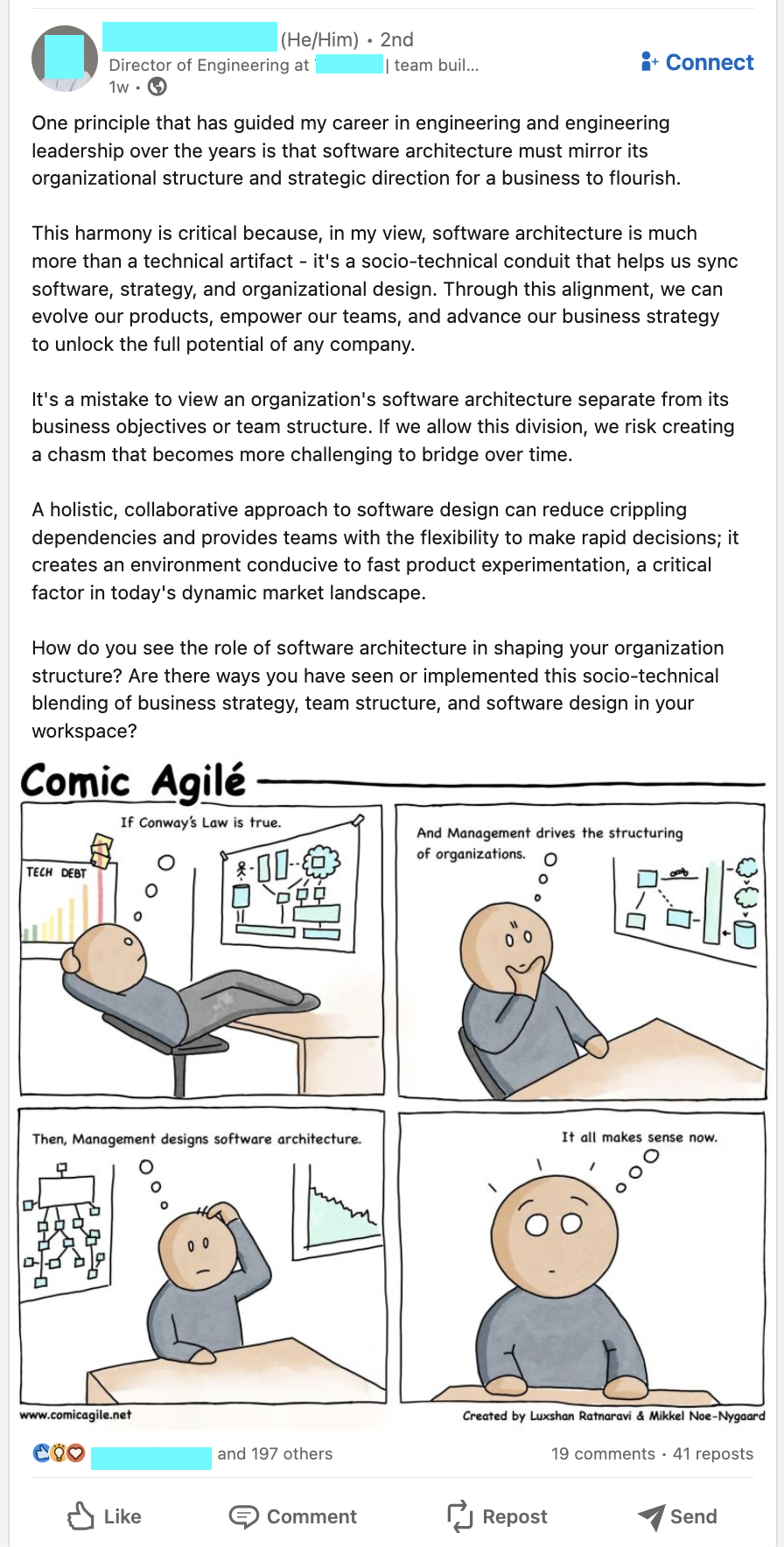The original post advocates for a holistic, collaborative approach; management and technical experts should be working together to align technical and organizational structure. I fully agree with that view (and I'm not a manager).
There is more than enough "shit managers say" material out there, but this is not it.

